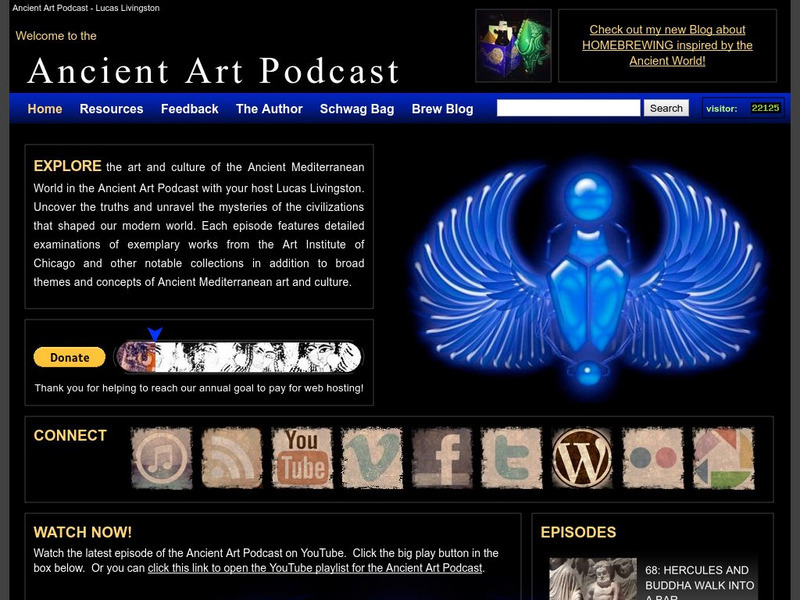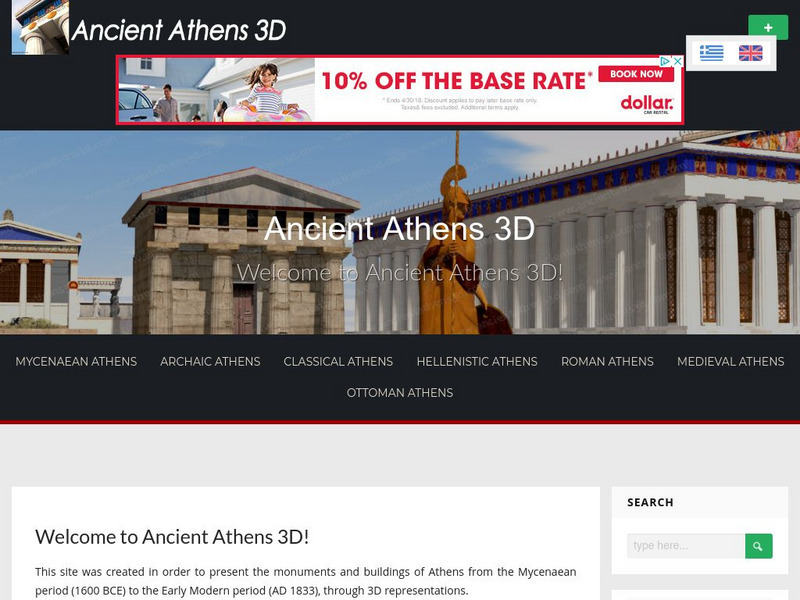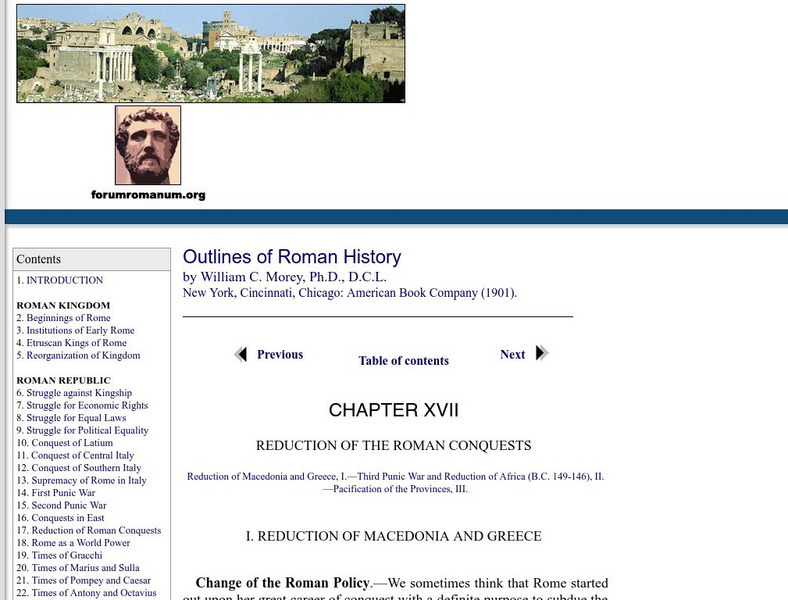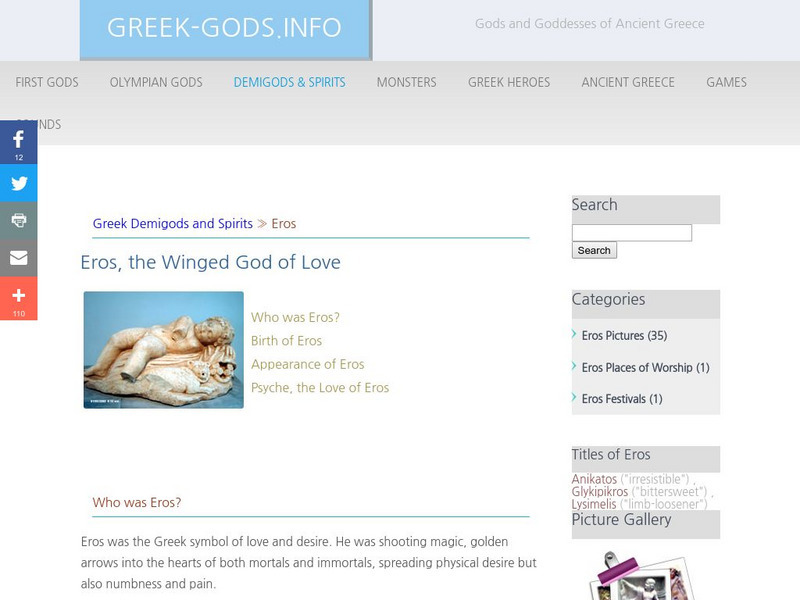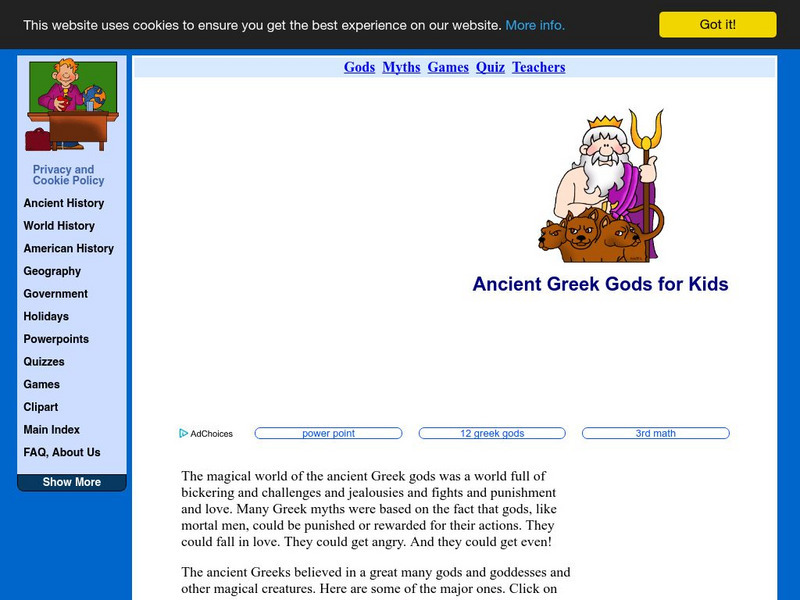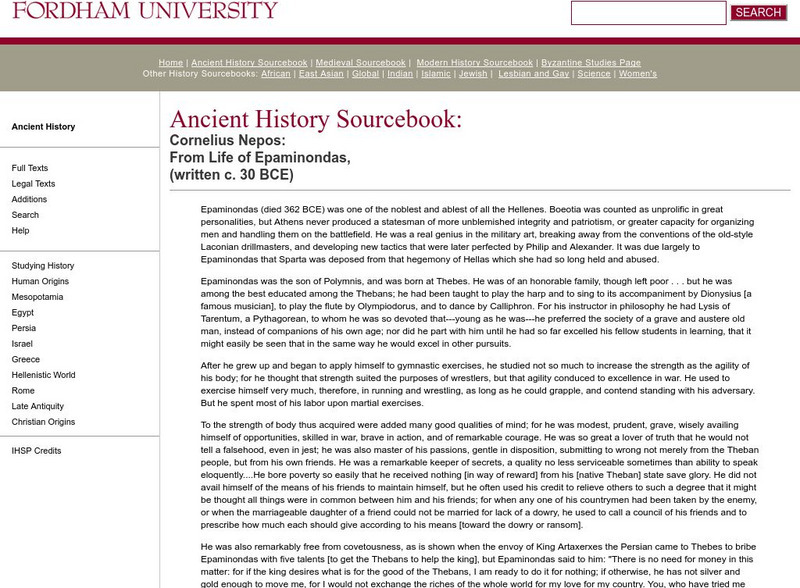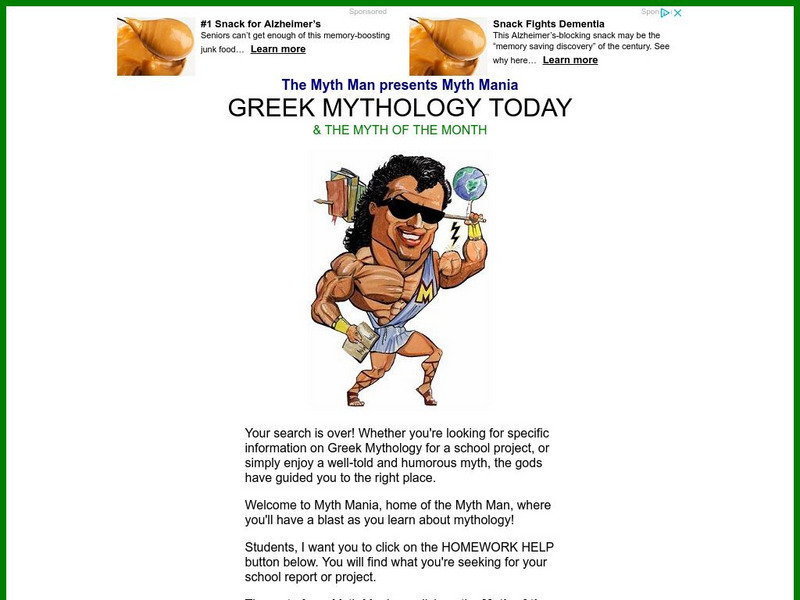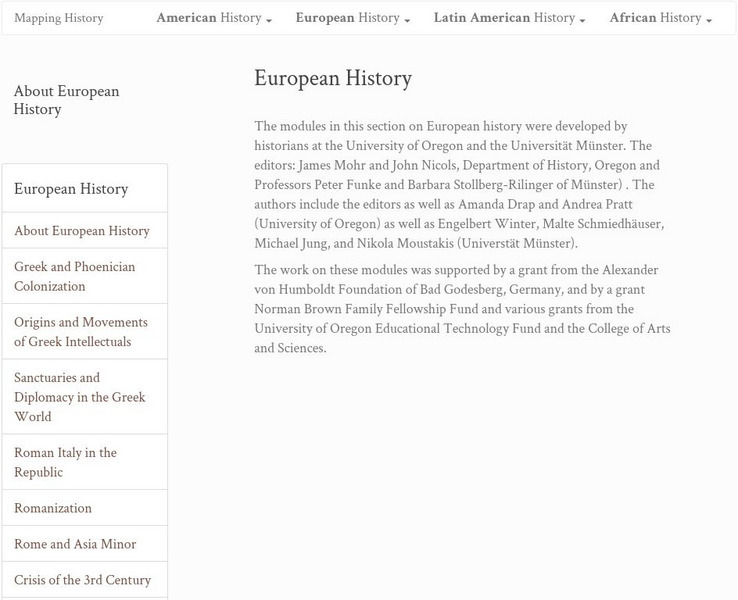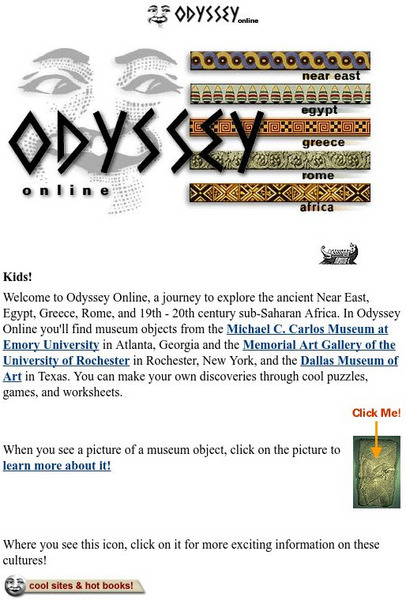Hi, what do you want to do?
Utah Education Network
Uen: Ancient Civilizations and the Modern World
Learn how ancient civilzations developed based on the local physical features and how the boundaries of early civilizations compare to their modern counterparts.
Other
The State Hermitage Museum, St. Petersburg, Russia
The Hermitage is home to vast collections of art and artifacts dating from paleolithic times and continuing forward into the present day. With a variety of search capabilities, zoom and panoramic features, analytical discussions, and...
Savvas Learning
Pearson Education: Greek and Hellenistic Civilization [Pdf]
This is a summary of chapter three of a textbook on world history. It looks at the contributions of the ancient Greeks to western civilization, the breadth of their civilization in the Mediterranean and the Black Sea regions, and their...
Other
Ancient Art Podcast
Video podcast series about the art and culture of the ancient Mediterranean world hosted by Lucas Livingston, a director of education at the Art Institute of Chicago. Choose from a large menu of select topics on the art of ancient Egypt,...
Other
Ancient Athens 3 D
This website is devoted to documenting the buildings and monuments of Athens from the Mycenaean Period to about 1800 AD. Choose an era and read about the history and structures of that time period. The last section is a complete list of...
Columbia University
Columbia University: Ancient Architecture
Learn about ancient architecture and explore 360 degrees panoramas of buildings in Egypt, Greece, Portugal, Italy, and Sicily. Includes an interactive plan of a 3D reconstruction of the Parthenon, and features the project page for this...
Emory University
Emory University: Odyssey Online: Ancient Civilizations
Brief studies of the peoples, mythology, daily life, death and burial, writings and archaeology of civilizations in the Near East, Egypt, Greece, Rome, Africa, and the Ancient Americas.
World History Encyclopedia
World History Encyclopedia: Agora
Description with illustrations offers brief history of the Agora in ancient Greece.
Massachusetts Institute of Technology
Mit: Open Course Ware: The Ancient City
Comparing Greek and Roman architecture? Unearth new resources for teaching about the methods of development in these ancient cities.
University of Michigan
University of Michigan: A Taste of the Ancient World
A collection of articles on the various types of foods consumed in the ancient Greco-Roman world. Clicking on the items will provide information and pictures. Examples include grain, grapes, olive oil, fish and more.
Forum Romanum
Outlines of Roman History:reduction of Macedonia and Greece
As Rome expands her boundaries, she has to figure out how to treat the conquered lands. This site shows Rome trying different options and finally settling on the idea of provinces.
Greek Gods
Greek Gods: Demigods & Spirits: Eros
Eros (Cupid), the winged god of Love in Ancient Greece, shot golden arrows into the hearts of both humans and gods.
Other
University of Massachusetts Lowell: Italian Renaissance: Neoplatonism
This site explains how the Platonic tradition was revived in Italian Renaissance humanism. It presents an analysis of Ancient Greece and Plato's thought, and then describes how his ideas were adapted to fit humanistic teaching. It also...
Lin and Don Donn
Mr. Donn: Ancient Greek and Roman Gods and Goddesses
A listing of Greek Gods and Goddesses and their Roman counterparts as well as what each God represented. Click on each name to access a more detailed description.
Internet History Sourcebooks Project
Fordham University: Ancient History Sourcebook: Cornelius Nepos Life of Epaminondas
A biographical sketch by 1st century B.C. Roman author, Cornelius Nepos, of the Theban statesman and military leader, Epaminondas. Epaminondas lived at the beginning of the 4th century B.C. The author stresses Epaminondas's strength of...
Other
Greek Mythology Today and Myth of the Month
A large Greek mythology site focused on students and expressing a great love of Greek myth. Contains the Myth of the Month, as well as Homework Help concerning myths. Humorous and colorful.
Forum Romanum
Outlines of Roman History: The Conquests in the East
Rome's power is challenged by kingdoms in the East, especially Philip V of Macedonia. After three wars against Macedonia and one against Antiochus of Syria, Rome shows her strength.
University of Oregon
Mapping History: European History
Interactive and animated maps and timelines of historical events and time periods in European history from Greek and Phoenician colonization up to the 20th century.
Emory University
Emory University: Odyssey Online
Odyssey Online is a resource for both students and teachers as they explore world mythology in reading, writing, history, and art classes. Providing sections on Near Eastern, Egyptian, Greek, Roman, and African mythology, Odyssey uses...
Lumen Learning
Lumen: Boundless Communication: History of Public Speaking
This lesson offers a brief history of public speaking drawing upon the Western thought from Greece and Rome with Aristotle and Cicero. It lists and discusses the periods and the major speakers of each period.
Other
University of Illinois: The Early Centuries of the Greek Roman East
Read about the history of the Romiosini, or Greek Middle Ages and the development of the Greek-Roman east. The article is divided into two different sections. The first section includes the foundation of Constantinople as a means to...
Khan Academy
Khan Academy: Introduction to Ancient Rome
From a Republic to an Empire. In legend Rome was founded in 753 B.C.E. by Romulus, its first king. In 509 B.C.E. Rome became a republic ruled by the Senate (wealthy landowners and elders) and the Roman people. During the 450 years of the...
Other
Women in World History Curriculum: Female Fury in the Forum
This lesson uses two examples of women asserting their power in Roman history to show what rights they really had. Activities are discussion based but could be easily expanded upon.
University of Virginia
Etruscan and Roman Medicine
Gives a short description on the practice of medicine in Etruscan and Roman societies. The first doctors came from Greece but Roman medicine tended to be more of a "home remedy," situation.







